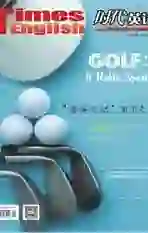跟踪导练(四)3
2019-03-13
阅读七选五
Four Benefits of Writing by Hand
Its better for learning.
1 Thats because putting ink to paper stimulates (刺激) the brain. The brain areas related to learning “lit up” much more when kids were asked to write words like “spaceship” by hand versus just studying the word closely.
2
Many famous authors prefer writing by hand to the use of a typewriter or computer. Writer Susan Sontag once said that she penned her first drafts (草稿) before typing them up for editing later. She said, “ 3 ” According to a study: Elementary school students who wrote essays with a pen not only wrote more than their keyboard-tapping friends, but they also wrote faster and in more complete sentences.
It will prevent you from being distracted.
The computer in front of you is really a distraction. 4 Scientists even suggested that taking five-minute breaks to browse Tumblr or BuzzFeed could make you a more productive worker.However, when its time to work on that essay, have only a pen and paper in front of you.
It keeps your brain sharp as you get older.
5 Some physicians say that the act of writing is good exercise for those who want to keep their minds sharp as they age.
A. It makes you a better writer.
B. Writing is good for your brain.
C. Of course, the Internet isnt all bad.
D. I like the slowness of writing by hand.
E. Try writing by hand from time to time.
F. Many writers have a preference for writing by hand.
G. One of the most effective ways to study is to rewrite your
notes by hand.
1. 2. 3. 4. 5.
完形填空
Mom said they might not be back until after eleven. My brother Greg and I 1 to play hide-and-seek. But there was not much 2 except in the front room. The 3 was that we were not allowed in there by ourselves. Anyway, we just took the 4 .
Once there, both of us were cautious (謹慎的) and moved about 5 for some while. Then, when I hid behind a tapestry (壁毯), 6 by my brother, I jumped out. With a sense of horror, I felt my right elbow striking something 7 . We heard a crash. Even 8 we dared to look, we knew that the vase lay broken.
When Mom and Dad came home and viewed the pieces, we knew any 9 would only serve to fuel their anger. Mom 10 us to sit on the bare floor, beside the ruin. She cried, “How could the two of you have done this?” Greg and I, too 11 to cry, could voice no answer. After a while, she allowed us to 12 and stayed there alone by herself, much like a statue (雕像).
Greg and I 13 throughout that night, struggling to decide what we might do to 14 it. We hoped with the money we had 15 we might just have enough to buy a vase. The next day, we set off to 16 through every local shop until we found a good copy.
When we 17 home in silence, we 18 Mom and Dad with what wed bought. Dad 19 out, took it from Greg and then passed it to Mom. She sighed, “You broke our Ming vase.” But we believed they knew we were 20 .
1. A. decided B. expected C. pretended D. happened
2. A. time B. space C. light D. work
3. A. puzzle B. reason C. problem D. answer
4. A. step B. break C. chance D. risk
5. A. freely B. quickly C. excitedly D. carefully
6. A. heard B. followed C. discovered D. taken
7. A. fast B. hard C. loudly D. easily
8. A. after B. before C. when D. until
9. A. permission B. information C. explanation D. instruction
10. A. wanted B. invited C. ordered D. taught
11. A. polite B. frightened C. annoyed D. stupid
12. A. run B. play C. leave D. speak
13. A. slept B. listened C. cried D. talked
14. A. fix B. make C. finish D. count
15. A. spent B. saved C. borrowed D. dropped
16. A. go B. search C. see D. get
17. A. remained B. stayed C. arrived D. drove
18. A. shared B. served C. connected D. presented
19. A. came B. reached C. watched D. carried
20. A. sorry B. proud C. delighted D. worried
